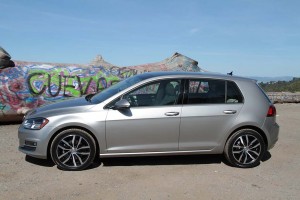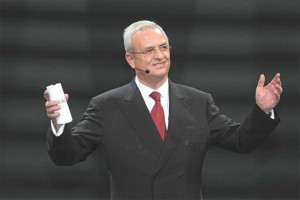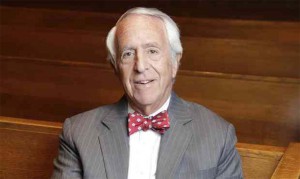A federal judge in San Francisco is giving Volkswagen a month to come up with an acceptable fix that would bring 600,000 polluting diesel vehicles into compliance with U.S. emissions laws.
The announcement by U.S. District Judge Charles Breyer comes as the maker begins repairs of more than 10 million other diesel vehicles it sold outside of the United States. But so far, the German maker hasn’t been able to come up with a solution that will satisfy the Environmental Protection Agency, which first revealed last September that VW had cheated on diesel emissions tests.
“Six months is long enough” to come up with a solution, said Judge Breyer, who will oversee hundreds of lawsuits filed against the German maker that were recently consolidated before his court. “This is an ongoing problem.”
In September, the EPA accused VW of using a so-called “defeat device” to allow its 2.0-liter turbodiesel to pass U.S. emissions tests – while producing dozens of time the allowable level of smog-causing NOx in real-world conditions. VW quickly acknowledged the subterfuge and subsequently admitted cheating on emissions tests with a bigger engine used in Audi and Porsche, as well as Volkswagen, models.
Last month, VW began making repairs in a number of markets, albeit at an extremely slow pace. But a proposed U.S. fix was rejected in January and while the maker has said it is optimistic about soon finding an acceptable alternative, government officials have expressed increasing frustration.

VW can't sell diesel models, like this Golf TDI, in the U.S. until it comes up with an emissions fix.
Among other things, that led the U.S. Justice Department to last month launch a civil lawsuit against the world’s second-largest automaker seeking as much as $46 billion in fines. The more than 500 ongoing lawsuits are seeking billions more.
Judge Breyer is pressing VW to come up with not only a technical fix but a compromise that could help settle the lawsuits without a protracted legal battle He this week warned the maker that it has to make some critical decisions “in the very near future,” adding that an eventual settlement might “not (be) the most advantageous for the company.”
Even as it struggles to come up with a technical fix and an acceptable legal settlement, VW is working with well-known compensation specialist Kenneth Feinberg who was appointed to run a program for VW diesel owners. Feinberg – who previously handled the GM ignition switch, BP oil spill and 9/11 victims’ compensations funds – has said he expects the German maker to be generous to owners.
But Feinberg also warned, “My hands are tied as long as VW and the authorities have not overcome their differences.”
What might happen if a technical fix isn’t put in place by Judge Breyer’s March 24 target is not clear. He could hold the maker in contempt, adding to the potential fines it will face.
(Unions ratcheting up pressure on VW. Click Here for the story.)

Internal documents suggest members of former CEO Winterkorn's inner circle knew about the diesel problem for some time.
Separately, the Justice Department is continuing a criminal probe that could result in charges against the carmaker and even individual executives and managers.
What remains unclear is who was actually responsible for the cheating. VW executives, including CEO Matthias Mueller, have repeatedly claimed it was the work of a handful of engineers who couldn’t meet the company’s aggressive diesel emissions goal.
But documents that have surfaced as part of Volkswagen’s internal probe of the matter strongly suggest that members of former CEO Martin Winterkorn’s inner circle were advised of the cheating at least by early 2014.
(Click Here for more on the internal investigation’s findings.)
VW has so far set aside more than $7 billion to cover the eventual costs of the diesel cheating scandal. It also has lined up nearly $20 billion in credit. The maker has delayed the release of both its internal investigation and its final 2015 financial report while it struggles to figure out how much of the costs will be charged against last year’s earnings.
There is at least one reason why Volkswagen may want to take Judge Breyer’s urging to heart. Until the maker can prove it can comply with U.S. emissions standards it will not be able to sell any of its diesel models in the States. Considering those generally account for about a quarter of its volume, the impact has been significant.
(VW struggling to shake off impact on diesel scandal. Click Here for more.)

